- Home
- Tim Lebbon
Kong: Skull Island Page 6
Kong: Skull Island Read online
Page 6
More accurately, he soaked up the local myths and legends. Always searching. Always seeking that kernel of truth that he knew existed in most tales. Occasionally he’d found a seed and nurtured it, but more often than not they were moved on from one battle to the next, and those ancient tales never germinated into something he could touch.
Then he was shipped to the Pacific and his whole world opened up. Hopping from island to island, seeing horrors and trying to save himself by filling his mind with unknown, impossible wonders, he’d sensed the vast scope of untold stories that endless ocean contained.
The gradual focus of his efforts had begun. He’d remained there after the war, travelling as much as he could and never settling down for more than a few months at a time. There had been women. Once or twice, he’d even fallen in love. It was his deeper love that always won through, and while he remembered the tears in their eyes when he left, he was already looking ahead to a wider, more fascinating world.
Slowly, surely, he’d begun to find it.
Perhaps this was the time when his life would begin to make real sense. He was going to record this journey, and when he returned he was going to commit his adventures to paper at last. Because those wild imaginings would be true, and he’d present the wide scale of his dreams to the world in a series of scientific papers that would shake history to its roots.
Randa smiled as he looked around the room. It was good to have ambition, and he’d never compromised on his own.
There were around thirty people in the room, and the place was filled with a low hubbub of curious and excited conversation. Many here already sensed that this was no ordinary voyage. At one end of the room, several display boards had been set up with sheets draped over the contents. That only added to the sense of expectation.
There were twelve people in the Landsat team, all of them sporting blue Landsat windbreakers. Randa knew that only a couple of these guys had been in the field before, and most of them exuded an almost childlike wide-eyed excitement. This was a true adventure for all of them, and he appreciated their enthusiasm. He saw in some of them how he’d been thirty years before.
Sat apart from everyone else were the Sky Devils crews. There were a dozen pilots, co-pilots, and support personnel, including Packard, the hard-faced colonel. Randa didn’t like him. He wasn’t sure if it was purely because he found the man intimidating and resented that, or for other reasons. Packard was a career military man, and Randa had the impression that he always looked down upon anyone not in uniform.
At the back of the room, alone, Conrad leaned against the wall and observed his fellow travellers. He was someone else who intimidated Randa a little—knowing his background, and some of the things he had done—but he couldn’t help liking the ex-SAS captain. He was quietly spoken most of the time, and unlike Packard he did not appear to look down on anyone out of uniform. It might have been because he considered everyone beneath him. Now, Conrad took in everyone and everything with a quiet intensity. He calmly flipped a lighter open and closed as he did so.
Randa had already decided that Conrad was a good man to have on their side.
Randa and the other six members of his team also sat apart, close to the front of the room. It gave the whole place a cliquey feel, but he hoped that might lessen over the course of their voyage. Nine days at sea together might help break down boundaries between disparate groups.
He was especially pleased to have San Lin with them. Not only was she a brilliant scientist with some startling theories, but speaking with her also helped him brush up on his Chinese. He was always looking to improve his education in any way that might aid his lifetime’s work.
Randa saw Brooks approaching, and knew instantly that the young man would go into auto-flirt mode. He headed directly for San Lin and held out his hand.
“Hi, Houston Brooks.”
“You two haven’t met, have you?” Randa asked. “San, Brooks wrote that dissertation at Yale I was telling you about.”
“Yes, the geologist.” She and Brooks shook hands. She smiled. “I’m San Lin. Biologist. I’ve been in the field since you were hired. Looks like I’m still there.”
“She’s been in the Brazilian jungle,” Randa said. “You should see her findings. Very impressive.”
“Yeah, I read the report,” Brooks said. “Interesting speculation.”
San raised an eyebrow. “You’re sceptical?”
“Don’t take it personally,” Brooks said, glancing at Randa. “I’m not sure I believe any of this. It just makes for a good paper.”
“Please forgive the new guy,” Randa said, enjoying taking Brooks down a peg. He was a nice guy, but too casual sometimes. Not committed enough. “He’s got a brilliant mind, but he doesn’t yet appreciate the beauty of the unknown. Your work was sound, Mr Brooks. This expedition is going to prove it.”
There was movement from the Landsat team, and Randa noticed Victor Nieves moving to the front of the room. He stood behind a table that had been set up there, glancing at the covered display boards, shuffling a sheaf of paper and looking nervously around the room. At first Randa thought he was nervous. Some people weren’t built for public speaking. Then it hit him—Nieves looked just like an excited teacher about to impart some treasured knowledge.
“Show’s about to start,” Randa said quietly, and his own excitement thrummed in his bones.
“Hello and welcome,” the man said. “I’m Landsat field supervisor Victor Nieves. Sitting just there is my colleague Steve Gibson, our data wrangler.”
Gibson raised a hand in greeting. The room had fallen silent, and remained so. Expectation was heavy.
“For those of you unfamiliar with Landsat One,” Nieves began, “it’s a satellite that views the exact same surface of the Earth every sixteen days, and provides an unbiased image using a multi-spectral scanner and return beam vidicon to provide eight-bit data…”
Shit, how to lose a room before you’ve even begun, Randa thought. Glances were exchanged, eyes rolled, and when Nieves looked to him, Randa shook his head. Someone laughed. One of Packard’s soldiers swore softly.
“Oh… er… well, it gives us pictures of the Earth from space. Since Landsat began, our team has surveyed a dozen untouched land masses discovered by the satellite imaging, with the express purpose of travelling there and exploring. We believe that this island, our destination on this voyage, will be the most challenging of the dozen we’ve found. All our images show the island surrounded by a near-constant storm system. That said, we’ve never had helicopter transport, so to the third helicopter attack squadron, a hearty thank you!”
Packard and his men nodded, and a couple gave soft whoops.
Nieves continued. “We’re also pleased to be joined for the first time by the resource exploration team, led by Mr Randa. Our main focus as map-makers will be on the island’s surface. Mr Randa’s team’s interest is in what lies beneath.” He smiled at Randa, then nodded at Brooks. “Mr Brooks?”
Brooks stood and walked to the front, tugging a couple of sheets from display boards as he did so. All very theatrical, Randa thought, but it was a good way to grab people’s attention. One revealed a large map. Beneath the other was a projector screen, and Brooks switched on a projector and stood back. The larger map was a composite from many satellite pictures, and the slides displayed more detailed, smaller sections of that same large image. Some areas were outlined, others marked with arrows.
Randa took in a deep breath and thought, I only hope Brooks doesn’t mess this up.
It was time to lay their plan on the line.
* * *
Too many cooks, Conrad thought. He’d been carefully surveilling the room, and he’d already come to the conclusion that there were too many independent parties involved in this effort, with disparate aims and each with their own leaders. Landsat, Randa’s team, the Sky Devils, the reporter. Him. And even within these smaller groups, there were those who didn’t seem familiar with each other. Brooks didn’t know
the Chinese woman, a fact evident from his clumsy flirting. The Landsat guys seemed like nervous school kids out on their first big trip.
The reporter, Mason Weaver, didn’t seem to know anyone else in the room. She intrigued him, and he wondered what she thought of all this. Hopefully soon he’d have a chance to ask.
The whole set-up felt wrong, and from the moment he’d boarded the ship he’d begun to question the wisdom of coming along. Conrad wasn’t in the habit of making bad decisions, and rarely considered that he’d swung the wrong way. It was uncomfortable thinking that now.
What Brooks started to say next grabbed his attention once more and made him like things even less.
“We’ll be performing a full geological survey of the island’s subsurface,” he said, pointing at a slide. “We’ll fly in over the south shore and drop ground sensors in this zone. They’ll measure data generated by the seismic charges we’ll drop on our next pass.”
The room went quiet and still.
“You’re dropping bombs?” Conrad asked.
“Scientific instruments,” Brooks said.
“You don’t approve?” Packard asked.
Conrad shrugged. “When has science ever steered us wrong?”
“You heard that boys,” Packard said to his troops. “We’re scientists.” They laughed, clapping each other’s backs.
The slides moved on, displaying waves from seismic charges travelling underground to the red-dotted sensors. A simple animation then showed data transmitted to monitors set around and within the survey area.
Nieves took over from Brooks.
“After the survey, we’ll land and make base camp for ground excursions, led by the entertaining Mr Conrad.”
“Your humble guide,” Conrad said. “Tips encouraged.”
Nieves nodded to Major Chapman, one of Packard’s team. He stepped quickly to the front to address the room. Conrad admired his military precision and efficiency, but yet again he found it troubling. This was a civilian operation with gunships, seismic bombs, and napalm canisters.
“Once on the island,” Chapman said, “the storm’s magnetic field will block all radio contact with the Athena. That means we’ll be on our own. After three days the refuelling team will meet us here.” He pointed at the map. “North shore, thirteen-hundred hours. This may be the only safe departure window for an unknown time. We cannot miss it.”
Across the room, above the worried chatter rising from virtually everyone there, Conrad caught Weaver’s eye. She threw him a frosty smile and looked away. She didn’t seem anxious, and he thought he knew why—she still didn’t know what she’d come to find.
There was more to this trip than anyone had yet revealed.
SEVEN
Randa grabbed a drink from the bar and dropped into a seat beside Nieves and the rest of his team. At least the ship had an officers’ lounge. On this voyage, it had been reserved for the passengers, no crew allowed. Randa had expected Packard to attend on his own, perhaps bringing Major Chapman along, but it seemed that the colonel was happy with his grunts drinking here too. Randa didn’t mind. It gave the place some much-needed atmosphere.
Now, though, he hadn’t come for fun, and Nieves knew it. He was here because there was a stranger on their ship, and all his thorough planning and secrecy might be under threat.
“So?” Randa asked. Nieves knew exactly what he was talking about.
“Bill, look, it seems the guy we hired dropped out at the last minute. I wasn’t made aware until now.”
“She hasn’t been cleared. No background check.”
“I don’t see what the problem is,” Nieves replied. “It’s our standard protocol to have a photographer on these expeditions.”
Randa sighed heavily, trying to hold in his anger. Everything could be put at risk by Weaver’s arrival. Chim had been in Randa’s pocket, as reliable as a journalist could be. The woman was not. He didn’t like having a wild card on board, and this was his party.
“Her resume is impressive,” San said.
“I don’t care how impressive it is, she’s a journalist!” Randa said, and when San and Nieves looked past his shoulder he knew that Weaver was standing right behind him. He didn’t really care. His skin was too thick for him to be guilted by social faux pas. Nevertheless, he tried on a smile as he stood and turned around. “Ah, Miss Weaver. I’m Bill Randa, leader of this expedition. Glad to have you along.”
“So what government agency are you with exactly?” she asked. No preamble, no greeting. Straight down to business. “Didn’t catch the acronym.”
“I didn’t drop one,” Randa said, smile slipping. “We’re explorers.”
“Exploring.” Weaver looked around at them all, as if taking pictures with her eyes. She’d probably already researched background on most of them. “I thought that ended with the pioneers. The ideals of Manifest Destiny aren’t too highly regarded anymore.”
“We live in a cynical age,” Randa said, meaning every word.
“After five years of military briefings, your bullshit meter gets finely tuned.”
“Listen, Miss—”
“Ms Weaver.”
“Right, Ms Weaver. Did the Europeans set out into unknown waters in search of gold? Or was it the mystery that was more enticing.”
“Gold, I’m pretty sure,” Conrad said. He raised his beer from where he’d been watching and listening at the bar, then quickly downed it and walked off, Weaver watching. Randa so wanted to spin around and berate him. But he knew what the man could do—it was why he’d hired him, after all—and the last thing he wanted was to piss him off. If things went south once they got on the island, Conrad was the person he wanted by his side.
Packard approached the bar and poured himself another whiskey, his presence forcing his way into the conversation.
“Colonel, have you met Ms Weaver?” Randa asked.
“I know her work.” The soldier joined them, his expression unchanging. “I don’t like it.” He downed the whiskey in one, touched his brow, then stalked from the room.
Weaver leaned in close to Randa and muttered, “Nice party you put together.” Then she walked to the bar and grabbed herself a drink.
* * *
Conrad liked being on a ship. He sometimes thought it was the isolation, cutting him off from all the things he had done and promising new experiences over the horizon. Or sometimes he guessed it was the idea of looking back along the ship’s wake, phosphorescence glimmering in the waves left behind like the remnants of past deeds.
He saw the little girl Jenny in that wake. He often saw her face.
It had taken a long time, but Conrad was quite at peace with his life. He’d chosen his paths, and even when he’d killed, it had always been essential in some aspect. Either kill or be killed, or kill because to not do so would put others at risk. He’d killed men fighting. He’d murdered a man in his sleep. He’d burned a woman alive in a car. All bad people.
His choices were all his own, and he lived with them well enough. The only choice that had not been his own had been the death of the little girl, and he had taken many years to put that in a place where he could deal with it. Perhaps it was selfish, or even cowardly, but he had come to accept that it had not been his fault. He couldn’t save everyone. Every time he saw her face or remembered her sad voice, he tried to offset the memory with the face or voice of someone he’d saved. Downed pilots, lost soldiers, inept civilians getting into situations way over their heads there were many people alive today who would be dead if it were not for him. It was ironic that a death he had not caused troubled him much more than those he had.
Yet today, steaming across the endless Pacific Ocean towards a new, unknown future still felt good. Even though he knew he was being deceived.
Snooping around to uncover that deceit felt good, too.
The hold wasn’t as dark as it could have been. A few small lights remained on, diffusing a soft glow here and there that helped him navigate his way throug
h the stacks of tied-down boxes, crates and piles of equipment. There were no guards that he could see, yet he remained low and quiet, just in case. He’d already checked to make sure there were no cameras covering the hold. Security was lax, and he hoped that meant there was little to hide. But he thought not. It was more likely that those hiding secrets didn’t think that anyone would come looking.
Beside a pile of crates he flicked on his lighter. The two closest to him were heavy wooden constructions marked with the Monarch name. He moved on to the next pile. SEISMIC CHARGES was stencilled on the side of one box, and beside that another read EXPLOSIVES.
Conrad extinguished the lighter. “In case things go sideways,” he whispered. Explosives? Were they actually mining for something? He liked this less and less, but to pry open the boxes would reveal that someone had been investigating.
Right now, it was probably best to leave things alone. See how all this played out. He was being paid well, after all.
He heard a click and spun around. Weaver was aiming a camera at him. She shifted position, focused, snapped another picture, then lowered the camera.
“This trip’s getting more interesting by the mile,” she said.
“What are you doing down here?” Conrad asked. She’d surprised him, and he didn’t like that. He’d let his guard down.
“I could ask you the same thing.”
“Just killing time,” he said.
“Me too.” She aimed her camera at the crates behind him and took a shot. “Why does a geological mapping mission need explosives?” she asked.
“You weren’t listening in class,” Conrad said. “Seismic charges for the geology survey.”
“And you believe that?” She swung the camera and snapped a shot of Conrad, casual, matter of fact. The camera was almost part of her, an aid to communication. Perhaps some sort of shield, too. Even in the briefing she’d had it slung around her neck, though she’d taken no pictures.
“I’m not a geologist,” he said.
“Doesn’t take one to know something doesn’t smell right.” She looked around the loaded hold as if deciding what to photograph next. The ship rocked and groaned, never silent. Conrad kept half of his attention on their surroundings in case someone came to check on the cargo. If they were caught down here, he’d have to confront the truth of this mission before he was quite ready. Maybe it was Randa, maybe Packard, but whoever was running the show, there was definitely more to it than appeared on the surface.

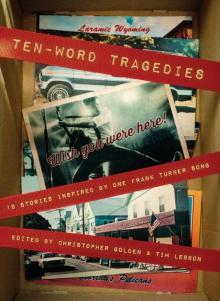 Ten-Word Tragedies
Ten-Word Tragedies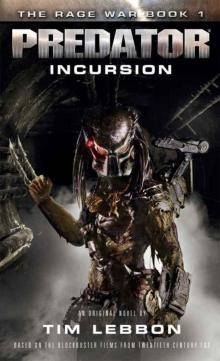 Predator: Incursion
Predator: Incursion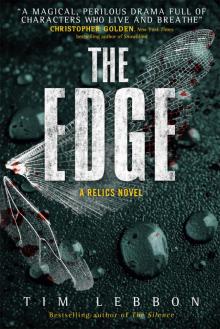 Relics--The Edge
Relics--The Edge Firefly
Firefly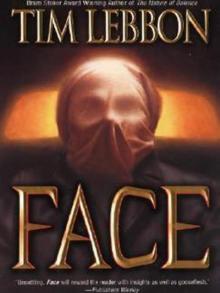 Face
Face Generations
Generations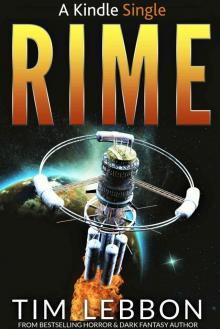 RIME (Kindle Single)
RIME (Kindle Single) Fallen
Fallen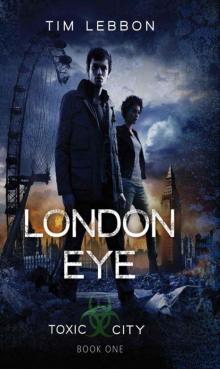 London Eye tc-1
London Eye tc-1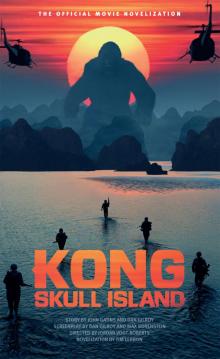 Kong: Skull Island
Kong: Skull Island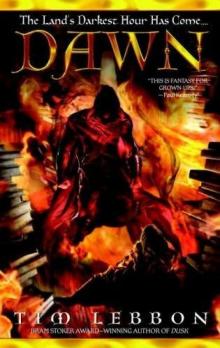 Dawn n-2
Dawn n-2 Into the Void: Star Wars (Dawn of the Jedi)
Into the Void: Star Wars (Dawn of the Jedi) The Everlasting
The Everlasting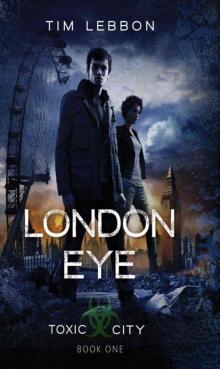 London Eye: 1 (Toxic City)
London Eye: 1 (Toxic City)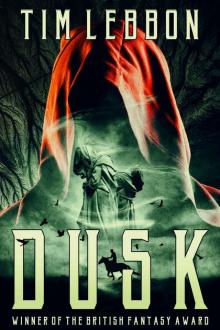 Dusk: a dark fantasy novel (A Noreela novel)
Dusk: a dark fantasy novel (A Noreela novel)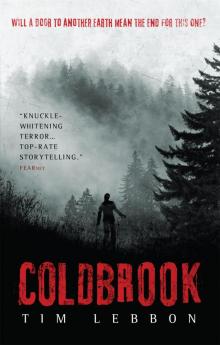 Coldbrook
Coldbrook Alien
Alien Dusk
Dusk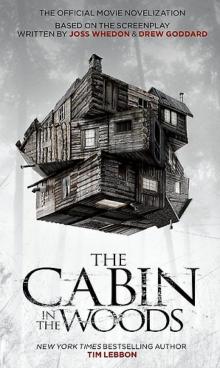 The Cabin in the Woods
The Cabin in the Woods The Heretic Land
The Heretic Land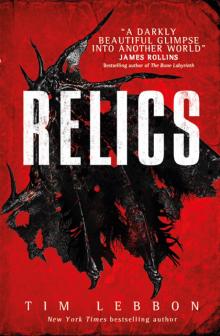 Relics
Relics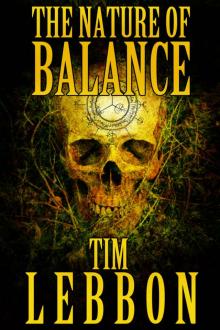 The Nature of Balance
The Nature of Balance Echo City
Echo City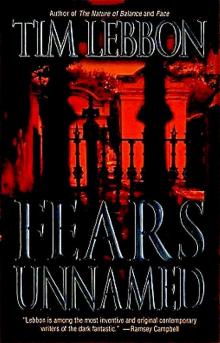 Tim Lebbon - Fears Unnamed
Tim Lebbon - Fears Unnamed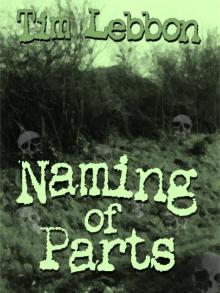 Naming of Parts
Naming of Parts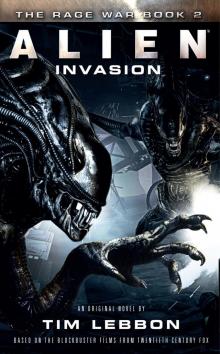 Alien--Invasion
Alien--Invasion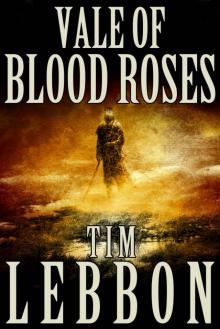 Vale of Blood Roses
Vale of Blood Roses Berserk
Berserk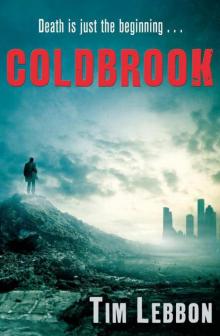 Coldbrook (Hammer)
Coldbrook (Hammer) Contagion tc-3
Contagion tc-3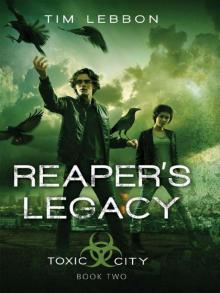 Reaper's Legacy: Book Two (Toxic City)
Reaper's Legacy: Book Two (Toxic City)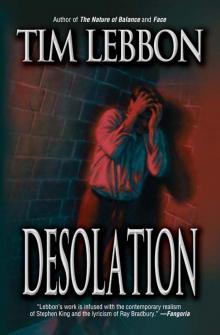 Desolation
Desolation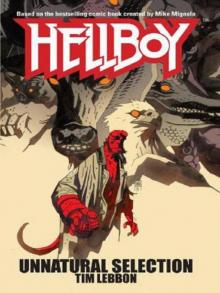 Unnatural Selection
Unnatural Selection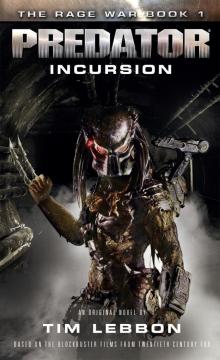 Predator - Incursion
Predator - Incursion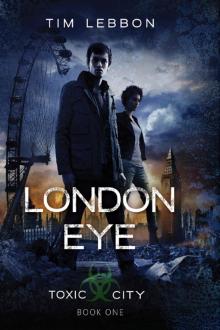 London Eye
London Eye Contagion (Toxic City Book Three)
Contagion (Toxic City Book Three) The Silence
The Silence The Thief of Broken Toys
The Thief of Broken Toys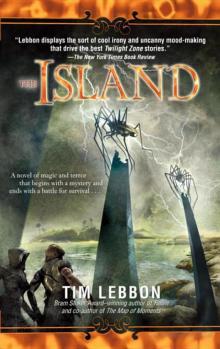 Tales of Noreela 04: The Island
Tales of Noreela 04: The Island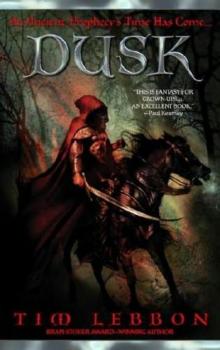 Dusk n-1
Dusk n-1 White and Other Tales of Ruin
White and Other Tales of Ruin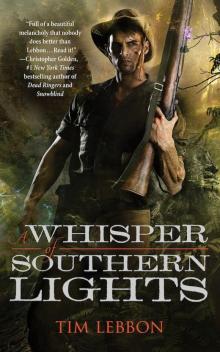 A Whisper of Southern Lights
A Whisper of Southern Lights Until She Sleeps
Until She Sleeps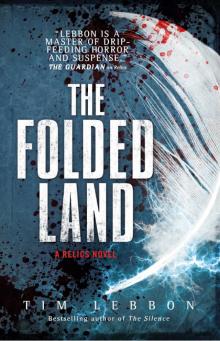 Relics--The Folded Land
Relics--The Folded Land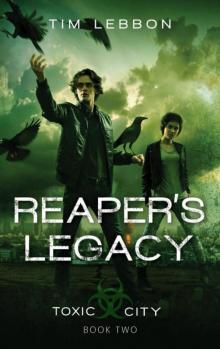 Reaper's Legacy tc-2
Reaper's Legacy tc-2 Alien: Out of the Shadows
Alien: Out of the Shadows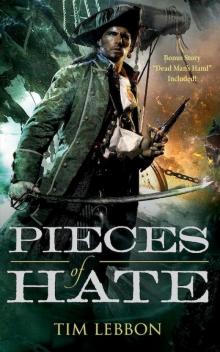 Pieces of Hate
Pieces of Hate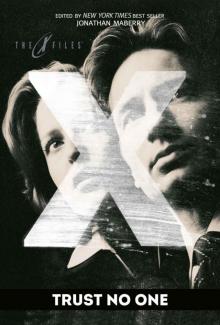 X-Files: Trust No One
X-Files: Trust No One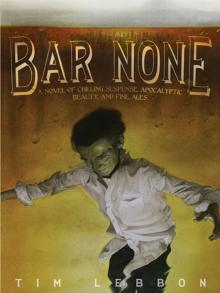 Bar None
Bar None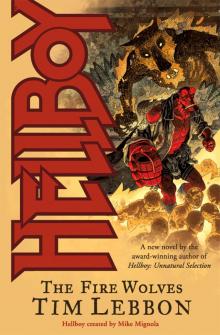 The Fire Wolves
The Fire Wolves